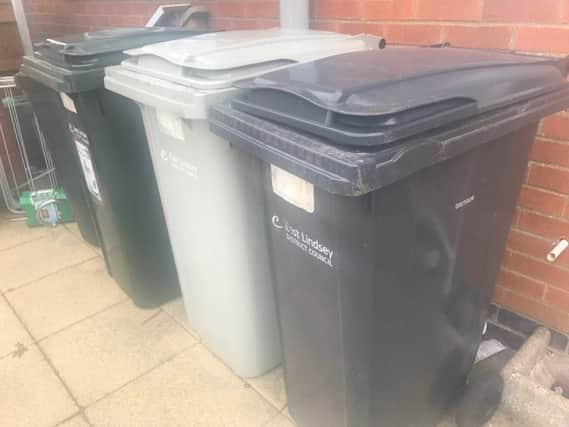Beware of '˜bomb' in youir rubbish bins


The urgent appeal has been issued following a second fire in recent weeks at a waste transfer station in Slippery Gowt Lane, Boston.
Even dead batteries can carry enough of a charge to short and provide a source of ignition. These can become buried in a pile of as much as 100 tonnes of combustible material at the transfer station, which is operated by Lincolnshire County Council which takes waste from Boston Borough and East Lindsey District.
Advertisement
Hide AdAdvertisement
Hide AdThe latest culprit is thought to have been a mobile phone battery found among the smouldering rubbish dragged from the pile.
Dealing with contamination in the recycling collection costs everybody more money and impacts the environment as material cannot be recovered for recycling.
Ian Taylor, Environmental Services Team Leader (Waste) for the county council, said: “The first fire caused some damage to the building and its fittings. The most recent fire was spotted quickly and the source removed and extinguished. Almost all the material in the recycling collection is combustible, so it’s not hard to imagine the consequences if there is an ignition source buried deep within it. So far we have been lucky, but luck can run out.”
Ian explained that batteries, or any electrical equipment which requires mains power or a battery to work, should not be included in waste collections because of the potential fire hazard they pose. Sellers of batteries in sufficient quantities – and that’s most supermarkets - have to, by law, provide battery collection points for safe recycling.
Advertisement
Hide AdAdvertisement
Hide AdHe said: “Of course, we should recycle electrical items and batteries, but not in either the recycling or refuse bins.”
Batteries and electrical goods can be disposed of for free at any other household waste recycling centre. Large items, such as televisions or desktop computers, can be collected by visiting the East Lindsey District Council’s bulky waste arrangements secction on their website.
A common contaminant in recycled waste that East Lindsey District Council collects is food. Any food waste that is incorrectly placed in the recycling waste can contaminate the items it touches, meaning they cannot be recycled. If a recycling bin contains items not on the list of accepted items, the bin may rejected and not be emptied by the waste collection crews.
A guide to what items can be recycled can be found online here.